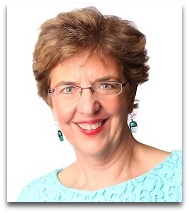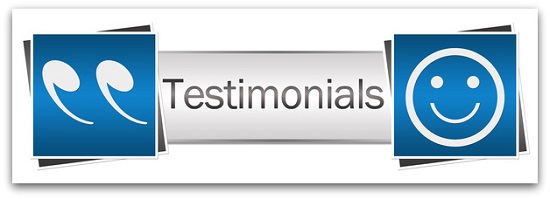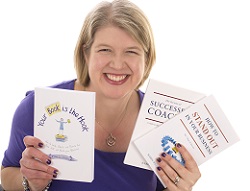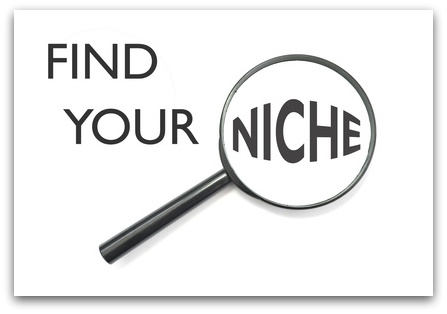5 Things I Wish I’d Known When I Started Out As A Coach
In today’s guest post Ruby McGuire uses her experiences and knowledge to share:
5 Things I Wish I’d Known When I Started Out As A Coach
by Ruby McGuire

I had a discovery call the other day with a client and she asked me what 5 things I wish I’d known when I started out. It got me thinking of the great things that I’d learned as a coach and then of the mistakes I’d made too!
It’s always good to reflect on your progress when you run your own coaching business, well any type of business. In everything we do we hope that we’re doing the right things. What we often don’t realise, until much further down the line, is that it could have been easier.
So here’s what I wish I’d known;
Niching
How difficult it would be to niche. I knew niching was the right thing to do, I knew the reasons I should do it and I fought it tooth and nail. When people asked who I coached I might as well have answered, ‘anyone with a pulse’.
That’s OK for a while. You find your feet, you get to know who you do and don’t like working with and what you do/don’t enjoy but over time it doesn’t pay the bills.
It’s SO much easier when you niche down. You become better known for what you do. Everything you do in your business is just so much easier. You have clarity, focus, direction, content and most importantly clients! You know what to write and to who. You understand your clients and know the pain and frustrations they have and how you can best help them.
It took me over a year to figure it out; I spent hundreds of hours, money, time and energy on it. You can read more about niching here (and when you shouldn’t niche here). I’m considering niching even tighter again in my own business, as I know how important it is.
Building a business takes time and hard work
I had no idea how hard it would be to build a business. I was quite business savvy. I’ve worked as Head of HR for a jewellery company, I ran my own HR consultancy for a while, but in doing my ‘grown up’ business it was way harder to get going.
You hear that business takes time and it absolutely does! In the early days I swopped my job for even longer hours on my business. I’ve worked incredibly hard because I knew that over time that effort would yield the results I’d been looking for.
I didn’t invest an enormous amount of money in the early days. I did the odd coaching programme here and there, but what I’ve noticed is that when I work with other coaches and mentors my business (and confidence) grows.
Get help if you need it. Just because you’re a coach you don’t have to have all the answers. Work with someone that can coach and/or mentor you to get the results that you want quicker.
You’re a trained coach, now you need to learn how to do business!
I knew I needed to build my business knowledge but I had no knowledge of social media. I knew about Facebook, which I’d avoided at all costs (it turns out that’s now my main source of business).
I had no idea about websites; I’d just had a static site when I was running my consultancy. Fast forward (let’s not say how many) years and there were different ways that you shared your expertise with potential clients, like eBooks and newsletters, blogging and YouTube videos.
Marketing now included ‘digital marketing’, ‘educational marketing’, and ‘content marketing’. My marketing strategy back then was contacting business owners, HR professionals and handing out business cards at networking meetings. There were loads of new things to consider now.
Over 6 months I had the steepest learning curve. Aside from learning all about marketing I set up an online membership club which meant figuring out my html code from my widgets, sidebars and plug ins. I was proud of myself.
I learnt how to do group coaching online, not just offline. I learnt how to record training content so had to learn how to do mp3’s and file compression, what to use to record and so much more.
I then spent a lot of time working out how to ‘sell’, how to talk to people, to build relationships. You need to learn how to run a business that includes all aspects of business. Without those skills you will not have a business.
‘Marketing’ can take up to 50% or more of your time
Ok, did you ever think to yourself, I could be different to other coaches? I have good business skills and a lot to offer. I will hit publish on my website and clients will come running? Ummm, well actually they don’t! I liken it to having a shop in the middle of the countryside. If you don’t tell people it’s there then how will you get any customers?
When I use the term ‘marketing’ here I’m using it in the loose sense of the word to include the vast number of activities that you do to bring in new clients into your business; social media posts, blogging, newsletters, article writing, networking – both on and offline, guest interviews, follow up with clients etc.
I can hear you shouting – ‘Give me the clients people – I just want to coach!’
Don’t we all, but first marketing! You have to get people to know, like and trust you.
When do you invest in a product without giving it some thought? Yes, you might have a few impulse buys but with coaching you need to like your coach and know that they can help you get the results you need.
You’ve got to get out there and be visible, that’s what brings the clients (that plus lots of other things!)
Outsourcing / Investing
I spent TWO days trying to figure out something on my membership site when I was setting it up. TWO days! Do you know how long it took my techie VA to fix it? ONE hour! £25!
So, when I was spending all that time in a stubborn state of ‘I’m not stupid, I WILL figure this out’, I could have been earning some money, or at least taking action that would have produced money longer term. It’s crazy. We think that just because something takes us days on end it will take someone else the same time. It’s not true. Outsource even just a tiny amount so that you can start noticing what you could be doing when you’re not sweating the small stuff.
Ps. There’s probably an app for that! Not ready to outsource? Then find out if there’s an app that can save you loads of time. I invested £50 on a file compressing app for my videos – I spent FIVE days trying to do it on my own, asking around in groups. Invest!
I hope you’ve enjoyed learning some of the things I wish I’d known when I started out. It can be an overwhelming time with so much information out there.
If you enjoyed these tips then you will like my 7 Things They Didn’t Tell You At Coaching School mini eBook, where I share a few more things around this area.

About Ruby McGuire
 Ruby McGuire, a Clarity & Focus Diva is a mum, wife and cappuccino lover. She helps Coaches to take the ‘next step’ – whether that’s getting their first client through the door or taking their coaching business up a notch; She works with them to boost their confidence, coaching skills and business so that they can move forward.
Ruby McGuire, a Clarity & Focus Diva is a mum, wife and cappuccino lover. She helps Coaches to take the ‘next step’ – whether that’s getting their first client through the door or taking their coaching business up a notch; She works with them to boost their confidence, coaching skills and business so that they can move forward.
Extra info…
Her big mission is to rid the world of grumpy people, and the more coaches that stay coaching the more people get coached = happy people with happy lives. Ta-da, mission accomplished! If you liked this article then watch out for her co-authored book as part of the Dial-A-Guru series coming out next month. You can find Ruby at her pretty online home, www.rubymcguire.com or Facebook at Be The Coach You Dream To Be. Failing that she may be satisfying her obsession of pinning on Pinterest!

 Adele Michal helps entrepreneurs and small business owners help more people and make more money by teaching them how to sell authentically instead fearing sales.
Adele Michal helps entrepreneurs and small business owners help more people and make more money by teaching them how to sell authentically instead fearing sales.

 If you’re ready to write your book, stand out and become more visible,
If you’re ready to write your book, stand out and become more visible, 




 Write down how your work impacts your clients in the areas of health, career, finance, relationship and personal growth. Then put a monetary value (wherever possible) against each item. Now, add it all up and see for yourself how much value you deliver. Can you charge more?
Write down how your work impacts your clients in the areas of health, career, finance, relationship and personal growth. Then put a monetary value (wherever possible) against each item. Now, add it all up and see for yourself how much value you deliver. Can you charge more?